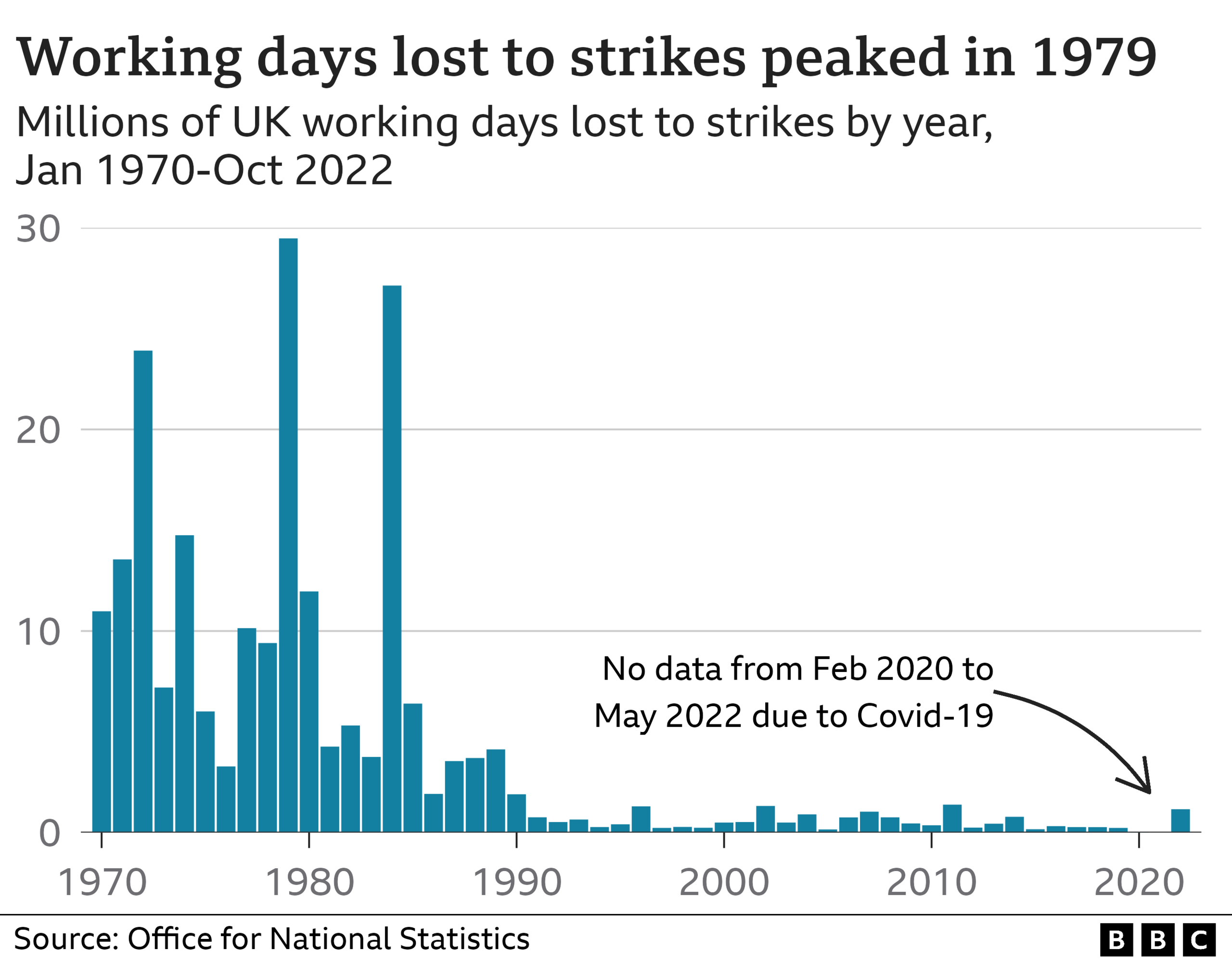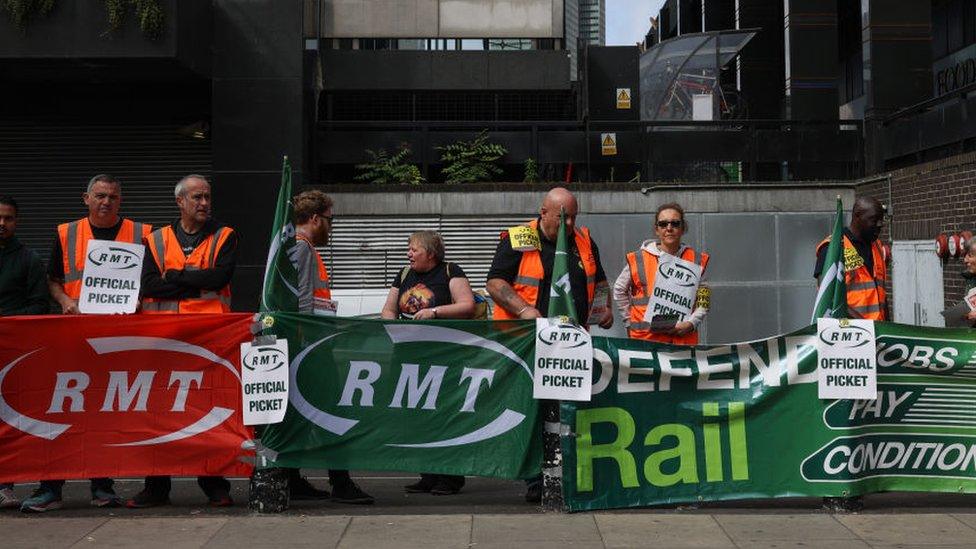Strike rules: What is a trade union and who is allowed to strike?
- Published

Tougher rules for some workers planning strike action have been announced.
The government said it would ensure key services like the NHS are protected, but unions plan legal action.
How could strike rules change?
Some trade union members would be required to continue working during a strike, under the proposed law.
This would be to ensure a "minimum level of service". It would apply to England, Scotland and Wales.
The sectors covered are:
The NHS
Transport
Education
Fire and rescue
Border security
Nuclear decommissioning
To meet minimum staffing levels - which are still to be announced - employers would be able to issue a "work notice" stating the workforce they need.
Employees named on the work notice would lose their right to protection from unfair dismissal if they then went on strike.
When could the new rules be introduced?
The proposals will not affect strikes happening now, as Parliament needs to approve the changes.
While MPs have backed the plans - by 315 votes to 236 votes - they also need to clear the House of Lords. This will be tougher for the government as it has less support in the Lords.
Unions have threatened legal action if the new law is passed, while Labour says it would repeal it if it wins the next election.
Is anyone allowed to strike at present?
A few professions are already not allowed to strike.
Police officers are banned from taking strike action, external.
Nurses have an agreement to only walk out if the wellbeing of patients is unaffected.
What are the current rules for calling a strike?
A strike can only happen if a majority of union members agree via an organised vote - known as a ballot., external
There are strict rules, external around holding a vote. For example, it must be a postal ballot - where members vote on paper and return it in a prepaid envelope.
If workers agree to strike, details must be given to the employer at least 14 days before it begins (unless the union and employer agree to seven days).
If the rules aren't followed, a court could prevent a strike.

Non-union members can also strike,, external says Crystal Boyde, an employment lawyer at Thrive Law.
"As long as the industrial action is lawful, non-union members are allowed to go on strike and remain protected from dismissal," she says.
Can strikers be sacked or replaced at present?
UK employees are protected from being sacked during the first 12 weeks of official industrial action.
If they are sacked during this period, they can claim unfair dismissal.
However, workers can be dismissed after 12 weeks, external if the employer has tried to settle the dispute. For example, if an employment adviser like Acas has been brought in to help find a solution., external
The government has introduced a new law allowing businesses to use agency workers to fill in for striking workers. However, trade unions have mounted a legal challenge, external.
What is a trade union?
Trade unions are organisations which help workers negotiate with employers.
They often help employees ask for more pay, or better working conditions. Unions also represent members who have problems at work.
If negotiations don't work, a trade union's members might support action such as a strike.
How many people are in trade unions?
Almost one in four UK workers (23%) were union members in 2021 - a total of 6.4 million people, according to government statistics., external
After peaking at 13.2 million in 1979, union membership has fallen significantly - although the rate of decline has slowed.

In 2021, 50% of public sector workers - including people like teachers and health workers - were in a union, compared with 13% of private sector employees. Employees over 50 are most likely to be members.
Members normally pay a subscription and can leave at any point.
Are strikers paid?
Workers on strike can expect to lose wages for the time they do not work.
No-one can be forced to take part in a strike - so a worker can choose to work.

Picket lines are common sights during strikes
How are trade unions linked to the Labour Party?
The Labour Party was created from the trade union movement in 1900.
There are currently 12 trade unions, external affiliated to the party, including two of the largest - Unison and Unite.
Labour relies on unions for funding. During the last general election campaign Labour received a total of £5.4m , external- of which £5m came from trade union donations.
Members of trade unions linked to Labour can apply to be allowed to vote in party leadership elections.